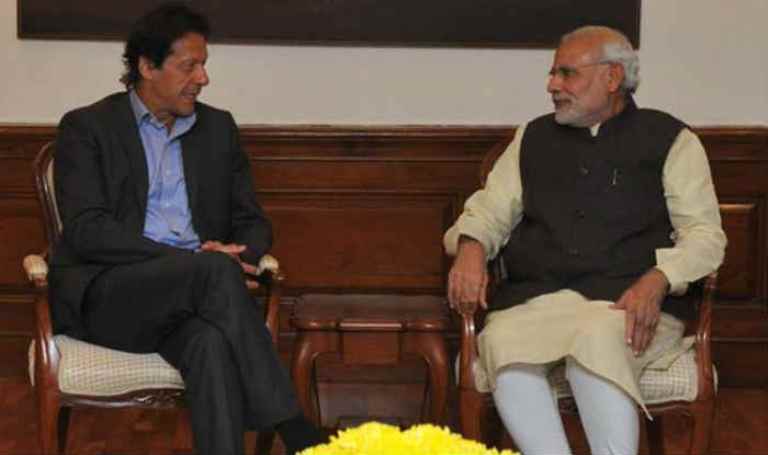Halt to sugar-cotton imports from India has not stalled the India Pakistan peace process. While the two sides are engaged in back-channel diplomacy, they do have differences on key issues as per the reports appearing in Pakistani media, reports Tahir Bhat

Several reports in recent weeks have claimed the existence of a thriving back-channel between India and Pakistan, which is pushing the current thaw in their relations. Some reports have revealed the details of the alleged ongoing secret dialogue. Reports published in two Pakistan publications, Dawn and Global Village Space, have indicated that Prime Minister Narendra Modi might visit Pakistan later this year to attend the SAARC summit. He, according to these reports, is also expected to announce more confidence-building measures (CBMs) that might propel the ongoing peace process forward. The reports also indicate a possibility of his Kashmir visit in the near future to announce Kashmir centric CBMs.
“There was also talk of the Indian prime minister visiting Pakistan later this year to participate in the South Asian Association for Regional Cooperation (Saarc) summit,” wrote Dawn. “It is speculated that the SAARC Summit which is held in suspended animation since 2016 due to Indian obduracy is likely to be renewed and the next summit will be held in Islamabad and Modi may attend. If so, it will change the whole dynamic,” wrote Global Village Space.
Similarly, as for Modi’s visit to Kashmir, Dawn wrote there was a possibility for it. Its report talked about “quiet talks in secret locations”, the progress of which may lead to the resumption of normal political activity in Kashmir.
Statehood, Terror
New Delhi, the reports have pointed out, has also sought concessions from Pakistan in terms of the reduction of violence in Kashmir. “In turn, the Indian officials raised the issue of what they call “cross-border terrorism”. Pakistani officials assured them that Islamabad was strictly following a policy of not allowing non-state actors to engage in any armed activity,” Dawn wrote.
Dawn also claims to have learnt that “Indian officials were open to hearing the Pakistani arguments, and often they responded constructively”. According to the report in the newspaper, Indian officials said they were ready to discuss the issue of statehood for Jammu and Kashmir and that India has also been open to talks about not bringing about any demographic changes. Similarly, the paper has claimed that Indian officials have even raised the possibility of “allowing normal political activity” to resume in Kashmir.
BackChannel Diplomacy
Earlier, newspapers in India have also run stories about the back-channel contact between India and Pakistan that made the February truce agreement along the LoC possible.
“NSA Doval and Moeed W Yusuf, Prime Minister Imran Khan’s special assistant on National Security Division and Strategic Policy Planning, have been in touch directly and via interlocutors from the intelligence community”, a report published in Hindustan Times in February read.
Similarly, a report in the British newspaper Financial Times (FT) said that Pakistan army chief General Qamar Javed Bajwa has told India’s national security adviser Ajit Doval that he was prepared to declare a moratorium on fighting in Kashmir. The paper also claimed that Bajwa “has launched talks with nemesis India to secure an eventual meeting between the neighbouring countries’ prime ministers”. The FT reported that it gained information from “three people with direct knowledge of the matter”.
Silent MEA
However, New Delhi hasn’t responded to these reports nor denied them. “Our respective High Commissions exist and are functioning. That is a very effective channel of communication. Regarding speculation about the SAARC summit, I have nothing to share with you at the moment,” Ministry of External Affairs spokesperson, Arindam Bagchi media when reports in a number of Indian, Pakistani and international publications were pointed out to him. He had also nothing to say when asked whether the backchannel dialogue is being overseen by National Security Advisor Ajit Doval and Pakistan Army Chief General Qamar Bajwa and whether the dialogue was facilitated by other countries, including the United Arab Emirates (UAE).
“The Indian and Pakistani High Commissions in Islamabad and Delhi, respectively, are an “effective channel of communication,” said Bagchi.
Sugar Halt
Recently, however, the detente was disrupted when Pakistan’s new finance minister Hammad Azar declared that Pakistan has decided to import sugar and cotton from India but the Pakistan cabinet later rejected it. It is said that critical political reaction from opposition led by Ahsan Iqbal of Pakistan Muslim League (N) and media channels created a furore forcing Imran Khan cabinet to quickly defer the resumption of trade.
But in an opinion piece, the Global Village Space has said that it doesn’t mean the death of the process. It said the “back-channel engagement is very much alive” as India has to take steps to restore the statehood of Jammu and Kashmir and create an “enabling environment”. It quoted “highly placed sources in Islamabad” revealing this to the website.
However, over the last week or so, the Pakistani establishment has become conscious about the kind of narrative they are projecting in regard to thaw with India, especially about Islamabad’s approach to Kashmir. While Pakistan wants to put Kashmir front and centre in both the back-channel talks and the open engagement with India, New Delhi wants “cross-border terrorism” to be discussed first. Both nations have irreconcilable positions on these issues. But the fact that they are engaged in some form of dialogue and have so far been able to sustain it is promising enough a development in itself.
What remains to be seen is how the two neighbours will reconcile their differences on terrorism and Kashmir going forward.















